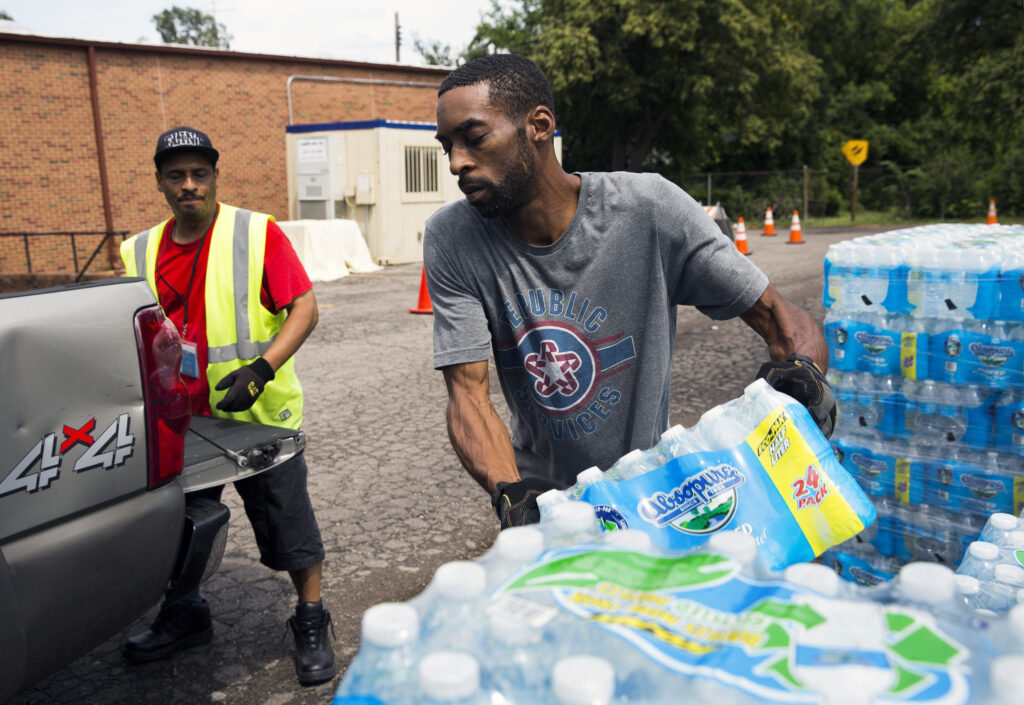After reading David Pellow and Robert Brulle’s article titled “Poisoning the Planet: The Struggle for Environmental Justice” and listening to the American Dissected podcast episode “Unleaded”, I wonder if environmental justice is not the most pressing issue facing the world today. The first principle of the environmental justice (EJ) movement states that “all people have the right to protection from environmental harm” (37), but with so many elements of our environment out of our control, it seems that that right has been largely ignored.
If we are to be free from environmental harm, it seems that every other aspect of our social fabric must change in some way. Environmental justice in these accounts is racialized, a class issue, a pressing point of economic contention, a political battle, a health crisis, a moral dilemma and the list could go on. Part of the effectiveness and one of the challenges of the EJ movement is its ability to permeate local, national and global issues, rendering it constantly relevant and somehow just as often overlooked.
The Flint Water Crisis, covered in the podcast episode, is an outstanding case study and runs the gamut of outcomes for the environmental justice movement. In the episode, the host provides a brief history of Flint, Michigan, a once powerful and thriving production center for General Motors that has now been red-lined and blockbusted into oblivion. By the mid 2010s, much of Flint was under the direction of emergency managers whose sole purpose was to cut the cost of government spending. This cost-cutting led directly to the replacement of water from Detroit with water from the Flint River sent through lead pipes without corrosion control to the residents of Flint.

The resulting health crisis has lasted over a decade with the effects being felt by nearly every resident of Flint, young and old. Economically, the crisis piles on to the already devastated town since the GM plant and its jobs left in 2014. But perhaps the worst result of the water crisis has been the treatment by federal, state and local officials of the community, especially Black residents of Flint. The false reassurances about the safety of the water supply have sown further distrust of a government which has already proven to the community that they are not prioritized. And this type of treatment is nothing new, as Pellow and Brulle point out, “African-American communities were being deliberately selected as sites for the disposal of municipal and hazardous chemical waste” (38) from a 1990 study that was basically the first of its kind for environmental justice.
Essentially, the arms of environmental injustice are many and far-reaching. After reading and listening to these selections, I struggled to find even one aspect of modern life not affected by environmental issues and inequalities.
Works Cited
El Sayed, Abdul. 2019. “Unleaded” Retrieved from https://crooked.com/podcast/unleaded/
Pellow, David and Robert Brulle. 2007. “Poisoning the Planet: The Struggle for Environmental Justice“. Contexts 6(10): 37-41.


wonderful reflection, Sarah. I agree that there is a way to see environment justice as the central struggle that brings all other struggles together. After all, this is about our survival as humans. Although, of course, the climate collapse has incredibly unequal effects. Your summary of what happened in Flint made me think about the GM plant closing and moving operations, I think to the South of the US, where they could have an ununionized and more exploitable factory. So this is also a story of the destruction of the labor movement in the US – another connection.
I don’t see your other reflections here anymore – but I know I saw them before!